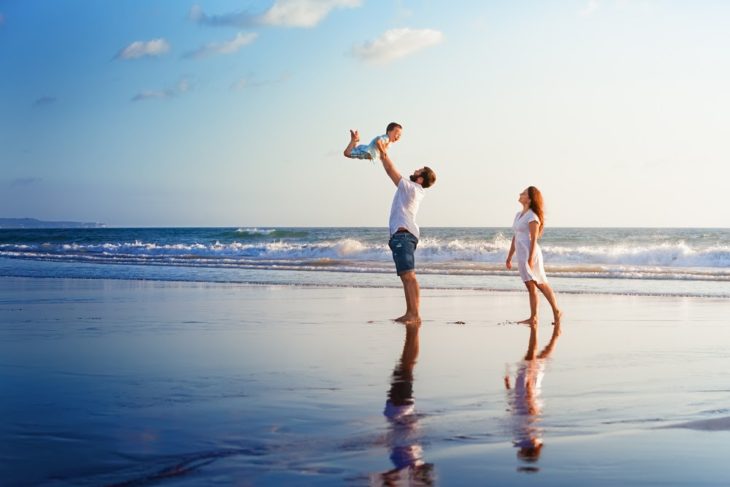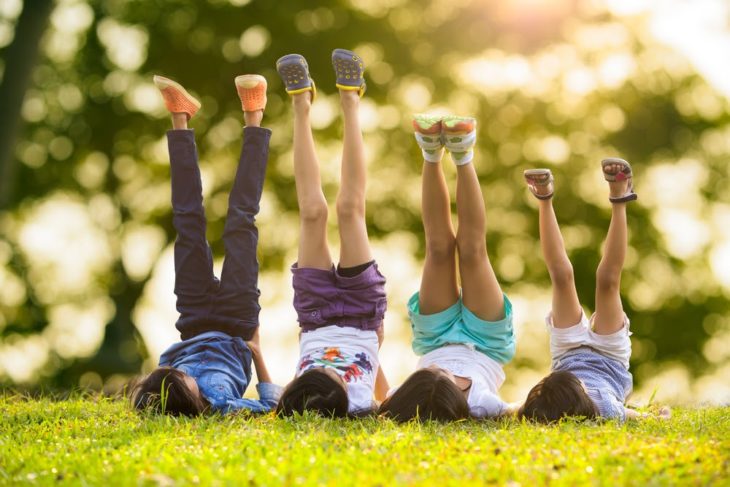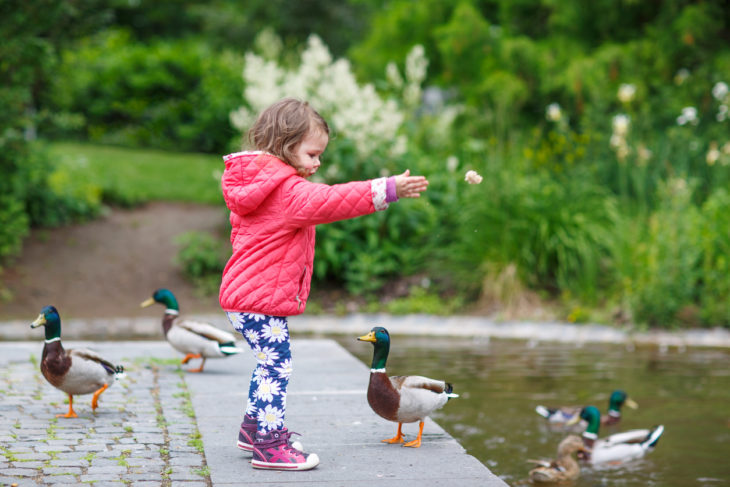There’s a fair amount of springtime imagery that accompanies babies and baby accessories. From clothing to nursery decor and everything in between, our little ones are inundated with images of animals, flowers, trees, and all manner of things green and free. However, our parents know that, in reality, it can be quite daunting to introduce your baby to the full world. You want to make sure that your bub’s first experiences are as pleasant as possible for them personally, which can be especially tricky if your child is on the fussy or shy side.
But the natural world holds a surprising list of interrelated gifts for all of us, and our babies aren’t exempt from this. Here’s a list of the significant benefits that embracing the great outdoors can hold for your baby.

source: shutterstock.com
Contents
Finding your family’s lifestyle
The folks at abc-design.com.au and other reputable makers of active prams, know all too well how crucial outlining your lifestyle can be for not just your baby, but also for you and other members of your immediate family too. Take some time to think about what your family’s shared lifestyle would look like. Are you sports-oriented? Picnickers? Or avid hikers? When your family has shared priorities, it can be infinitely easier to establish and maintain a balanced daily or weekly schedule.

source: shutterstock.com
Build a balanced daily program
A balanced daily schedule is one that allows your child to eat, sleep, learn, play, and engage with the broader world without fear or apprehension. This last element can be attained by integrating family time with free time and fully adopting a shared outdoor lifestyle in any capacity. Not only that, schedules provide your little ones with the resources they’ll need to get more comfortable every day (and sleep through the night), but you’re also reinforcing the value of time to do the things that you love with the people you love.
Develop healthy habits
It’s no surprise that their environments heavily influence children, and this rule sticks true even in your child’s infancy. It’s been said that a child’s early home environment can significantly impact their approach to developing and maintaining healthy habits as they travel further down the path of life. With your child’s eventual independence in mind, you must encourage them to engage with complex concepts like patience, nutrition, respect, and good sportsmanship as early as possible. Yes, these concepts can be explored through books. But books are but a microcosm of what is innately a macro world. And your child deserves a chance to apply their learning independently, say through playing a friendly game of cricket or doing a spot of gardening now and then, or just outdoor play in general. These hands-on learning opportunities allow your little one to engage with the complex concepts listed above in real-time and provide your baby with the innate knowledge that they can use throughout their life.
Work consistently on your physical and mental wellbeing
Importance of developing and maintaining daily schedules (alongside other healthy habits), it must be said that life is never static. The only constant thing in life is change. That is a fact that petrifies even the most well-adjusted adults. Some of us might see being afraid of evolution as a rite of passage. It’s important to remember that this fear is also temporary and that it’s always possible to right yourself so long as you remain focused and motivated.
Ensure that your child is capable of ‘bouncing back’ in the face of significant changes by consistently reinforcing the importance of prioritizing their health and wellbeing wherever possible. Make these concepts less abstract by encouraging your child to find specific activities that make them feel good, both emotionally and physically. That way, so long as they will always have access to these activities, they will still be able to rediscover their own physical and mental health and wellbeing.

Source: iStock
Encourage foundational learning
Piaget’s four stages of cognitive development outline a necessity for children to have engaged with different ideas at different stages over the first ten or so years of their little lives. Some have criticized Piaget’s timeline for being too demanding on the impressionable minds of young children. In contrast, others have praised his distaste for condescension, alongside his perception of children as ‘little scientists.’ Piaget recognized that there’s an innate curiosity that accompanies the innocence of infants, and in that regard, we’re genuinely all born as scientists. Some of us lose that desire to learn along the way. And some of us learn in different ways, and sometimes these alternative modes of thinking aren’t addressed informal learning environments. That’s why foundational learning is so important!
Enable specialized cognitive development
If there’s something specific that can draw your child`s interest, chances are incredibly high that they’ll be able to take their foundational learning pathway and take it to the expert level in a shorter period. It’s less about making a prodigy, and more about encouraging your child to develop their identity and start to create valuable intrapersonal skills. Independent or self-managed foundational learning is usually only attainable through engaging in outdoor play and encouraging your child to be vocal about their developing interests. Once your child has been able to find what makes them tick, the world is well and truly their oyster.
If you’ve made it to this point, you should now know all too well that the benefits of nature on young children can be overwhelmingly substantial, broad-spanning, and inherently interconnected. That is simply because life itself is a ‘whole system,’ which makes it the most foolproof ‘whole systems’ approach to ensuring that your child develops virtually all the skills they’ll need to lead a happy and fulfilling life.
